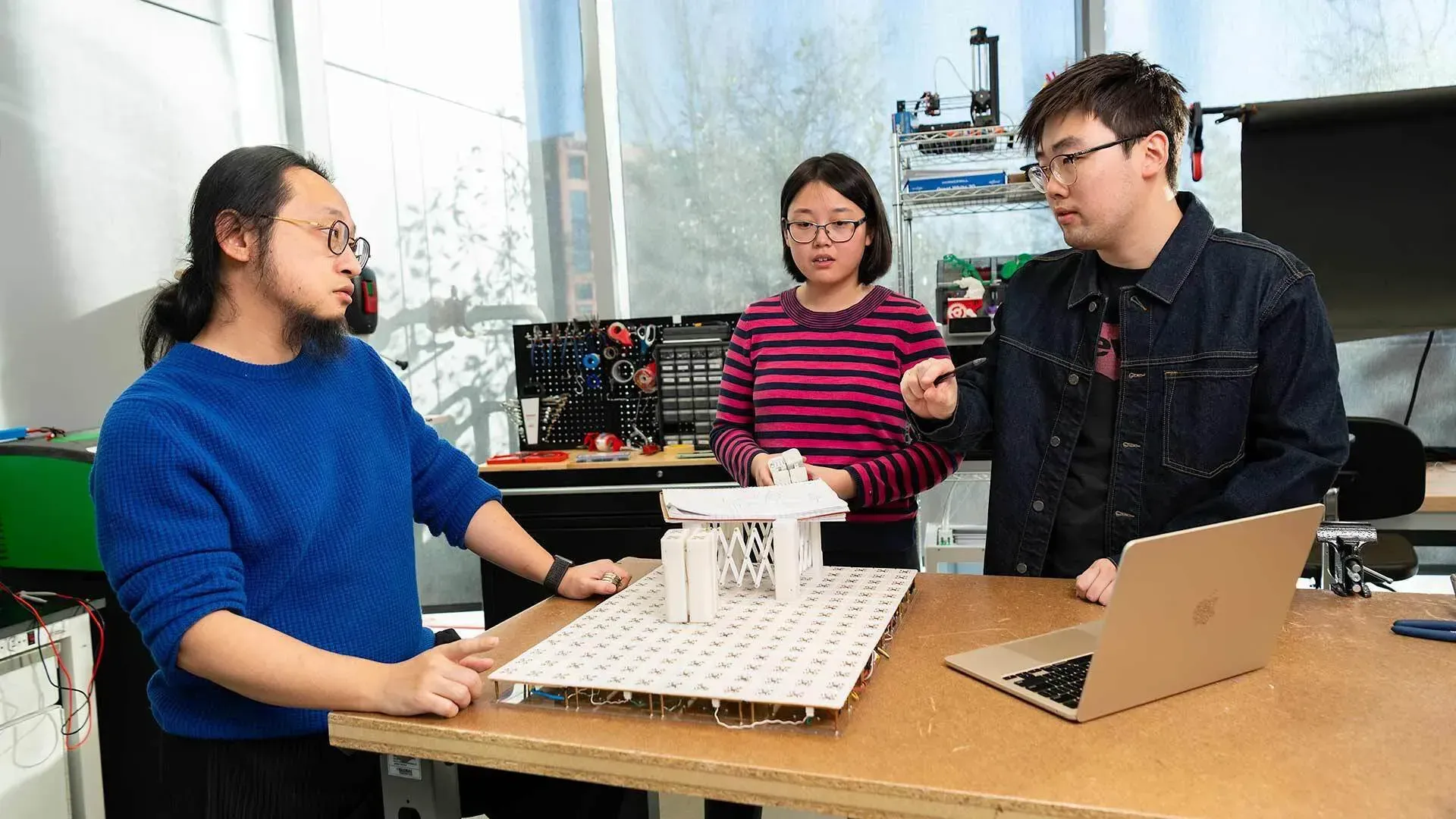- October 10, 2025
- By Maryland Today Staff
There’s no question that computers can’t provide humans’ caring touch. What they can do, however, is focus mountains of data, advanced algorithms and trillions of transistors on the problems people with disabilities often face, helping light the way to new solutions that people’s brains might not be able to discover on their own.
Starting today and continuing each Friday this October, we will highlight how the University of Maryland is shaping the future of artificial intelligence (AI) and transforming sectors of society through our research, education and service. From wearable tech that interprets facial expressions to AI tools that can ease social interactions, this week we’re spotlighting the pioneering ways UMD is using artificial intelligence to improve accessibility.
- In collaboration with colleagues at Cornell University, researchers from UMD’s College of Information (INFO) and College of Computer, Mathematical, and Natural Sciences are developing a wearable AI system that can help people with visual impairments better perceive nonverbal cues—such as a smile, furrowed brow or other gestures. This groundbreaking project aims to interpret and convey these signals in real time, enabling a richer, more inclusive communication experience for blind and visually impaired individuals.
- Researchers from the Maryland Language Science Center and the College of Behavioral and Social Sciences are teaming up to create neurodiversity-affirming tools for speech therapy. The project involves autistic adults and speech-language therapists co-designing AI tools that analyze everyday conversations. The technology aims to offer more objective, personalized and affirming approaches to therapy and communication.
- A new course being taught in the spring through the School of Public Health, "Fundamentals of AI-Powered Assistive Technologies," will explore how AI-powered assistive tech can address communication, cognitive, mobility and educational challenges while also examining ethical concerns and long-term implications.
- INFO researchers are exploring how AI can enhance speech-generating devices and allow them to go beyond responses that are functional but don’t convey an individual’s personality or convey subtle social cues. One area of focus is helping users deliver timely and witty comments, bringing humor and individuality into AI-assisted conversations—a crucial step toward more natural, expressive communication for those relying on such technology.
- The Inclusive AI project, part of the Maryland Initiative for Digital Accessibility, is working to make artificial intelligence more inclusive by improving access to datasets generated by people with disabilities. Through the development of IncluSet, a searchable repository that allows researchers to find and link accessibility datasets, the project addresses a critical gap in AI development and aims to ensure that future AI tech is more responsive and effective for all users—especially those with disabilities.
To learn more about how the University of Maryland is shaping the future of AI, visit ai.umd.edu.
AI at Maryland
The University of Maryland is shaping the future of artificial intelligence by forging solutions to the world’s most pressing issues through collaborative research, training the leaders of an AI-infused workforce and applying AI to strengthen our economy and communities.
Read more about how UMD embraces AI’s potential for the public good—without losing sight of the human values that power it.
